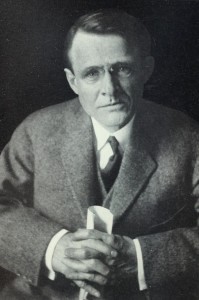by DAVID BROWN | CLEARNFO.com | November 18, 2014
“Competition is a sin.” — John D. Rockefeller
Through this I learned the explanation of the growth of monopoly in recent years. It is done in this way. The savings of the people, running into the millions, are deposited in the banks, savings institutions and trust companies. The latter enjoy immense powers under their charters. They can do almost anything. Thus entrusted with the people’s money, they are able to use their savings as they wish. The bank is controlled by its directors. They desire to build a railroad, street railway, or consolidate some industries or coal mines. They organize a syndicate among themselves. They secure options on the property. They then arrange to secure a loan on mortgage. On this they issue bonds. These the bank or trust company, which the syndicate really controls, agrees to underwrite, or take off the syndicate’s hands at par, or something below par. On these bonds money is advanced to buy the properties. Then the trust company sells the bonds to its depositors or customers at an advance, while the capital stock of the railroad, street railway, trust or coal monopoly, for which it has paid nothing, is retained by the syndicate. The bank has advanced all of the money used. And this money was earned by the people, the depositors. Then the people, and in many instances the depositors, buy back the bonds for an investment, leaving the cream of the deal in the hands of the syndicate, which is in fact but the officers of the bank who have borrowed from themselves and kept the stock for themselves. The next step is to make the stock valuable. This is done by putting up railroad rates, the price of commodities, of coal, or whatever else the syndicate is operating in. Thus the circle is completed. The people’s money is used to buy properties which are taken in the name of the syndicate, who are really the directors of the bank. Then the properties are consolidated and a lot of water in the form of stock added to the purchase price. Then the people pay again to their own trustees a big profit, by being compelled to pay monopoly prices for the things they consume.
— Confessions of a Monopolist by Frederic C. Howe
Chapter 6, pages 77 – 79
I Enter the Coal Business, Become a Railway Magnate, and Discover the Secret of Monopoly
Approximate date of this writing is 1895
Full Text Here.

